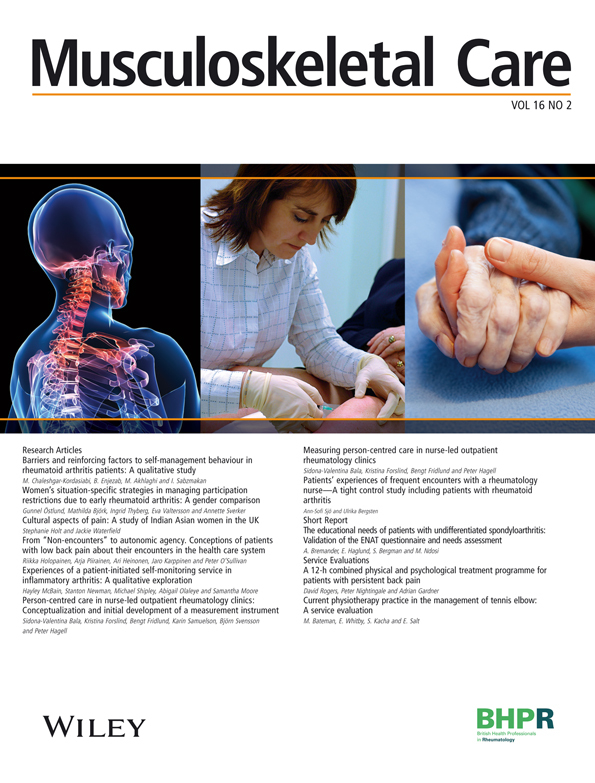Women's situation-specific strategies in managing participation restrictions due to early rheumatoid arthritis: A gender comparison†
Abstract
Introduction
The present study explored how women describe their use of situation-specific strategies when managing rheumatoid arthritis (RA). The aim was also to compare women's strategies with those of men, and see the extent to which they used the same strategies.
Methods
The data were collected using semi-structured interviews based on the critical incident technique. The sample consisted of women with early rheumatic arthritis (n = 34), and the results were compared with data reported in a previous study on men (n = 25) from the same cohort. The patient-described participation restrictions due to RA were firstly linked to the domains of the International Classification of Functioning, Disability and Health (ICF). The different strategies used were then categorized. The study was approved by the Research Ethics Committee of the Faculty of Health Sciences, Linköping University, Sweden.
Results
The study found that women used four situation-specific strategies: adjustment, avoidance, interaction and acceptance. The same strategies had been found previously in interviews with men with RA. Women and men used these strategies to a similar extent in the ICF domains of mobility; major life arenas; domestic life; interpersonal interactions and relationships; and community, social and civic life. However, some differences were found, relating to the reported activities in self-care and domestic life, in which women reported using strategies to a greater extent than men.
Conclusions
Women and men used four types of situation-specific strategies in managing RA; adjustment, avoidance, interaction and acceptance. These situation-specific strategies provide useful knowledge, in terms of multidisciplinary rehabilitation and for patients' significant others.




